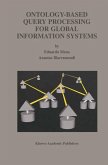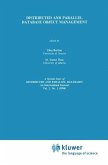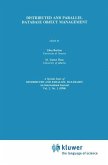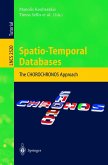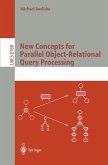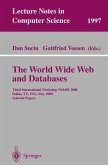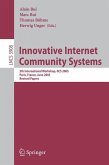This work is a revision of the doctoral dissertation of Eduardo Mena pre sented to the Department of Computer Science and System Engineering at the University of Zaragoza (Spain) in November 1998 [Mena 98]. The OBSERVER system was developed as a result of this Ph.D. thesis. This book is composed of eight chapters. In Chapter 1 we introduce our rationale for writing a book about systems that process queries in global information systems. Then in Chapter 2 we review the techno logical context for our work, including distributed and heterogeneous environments and the use of ontologies. We also compare related work to our own. Chapter 3 presents our proposed global system architecture for query processing in global information systems. The main modules in the architecture and the main steps given to process a query are briefly introduced. Chapters 4 through 7 provide a detailed description of each query processing step. In Chapter 4 we detail the steps needed to access the data corresponding to a query formulated over an ontology. All the aspects related to distribution, structural and semantic heterogeneity, and restricted query capabilities of the underlying data repositories are considered in this chapter. The main features of the mapping information that relates ontologies and data repositories are also described. Finally, we show the process of generating appropriate plans to access each involved reposi tory and the correlation of the answers coming from different reposito ries.


